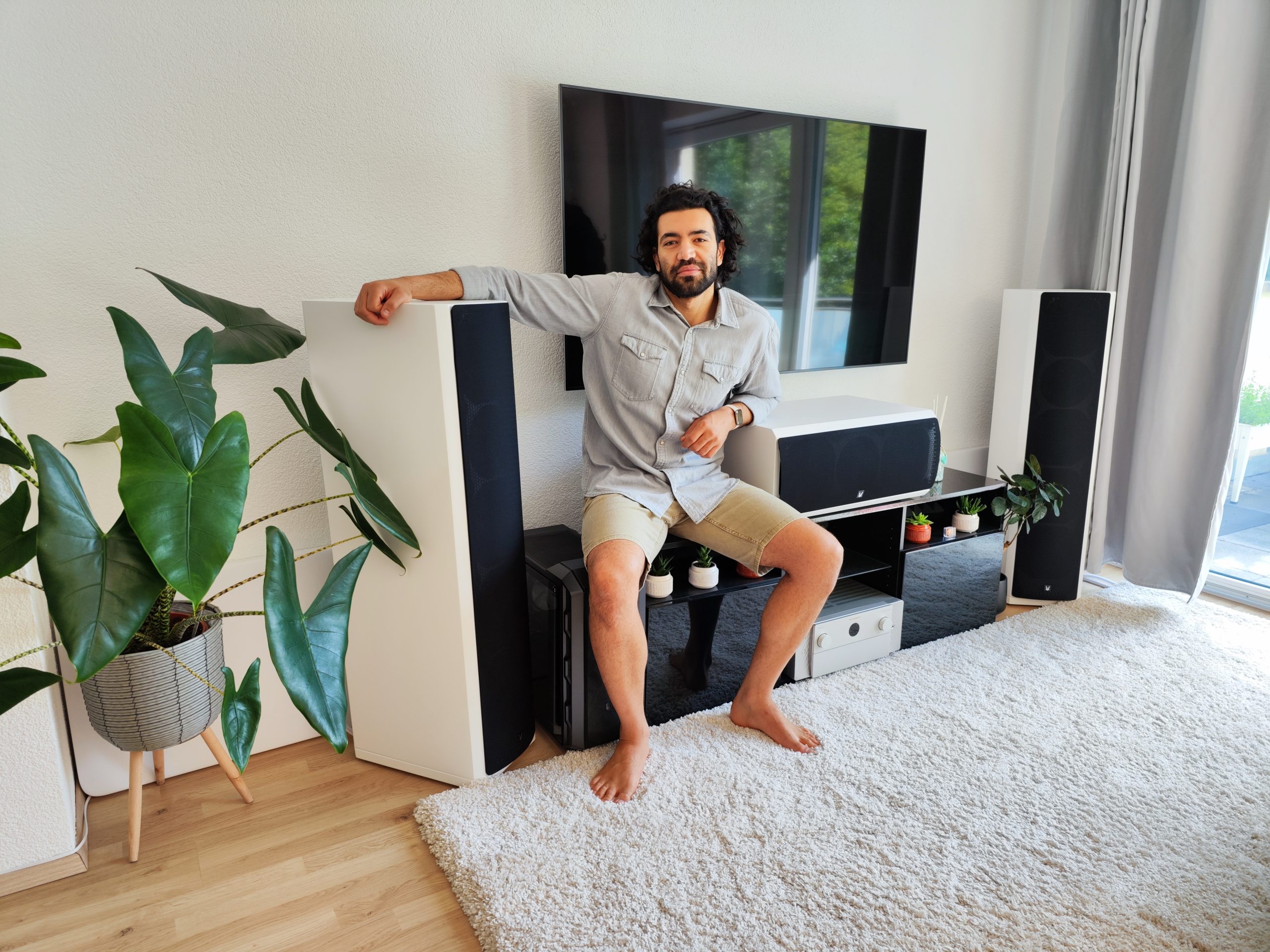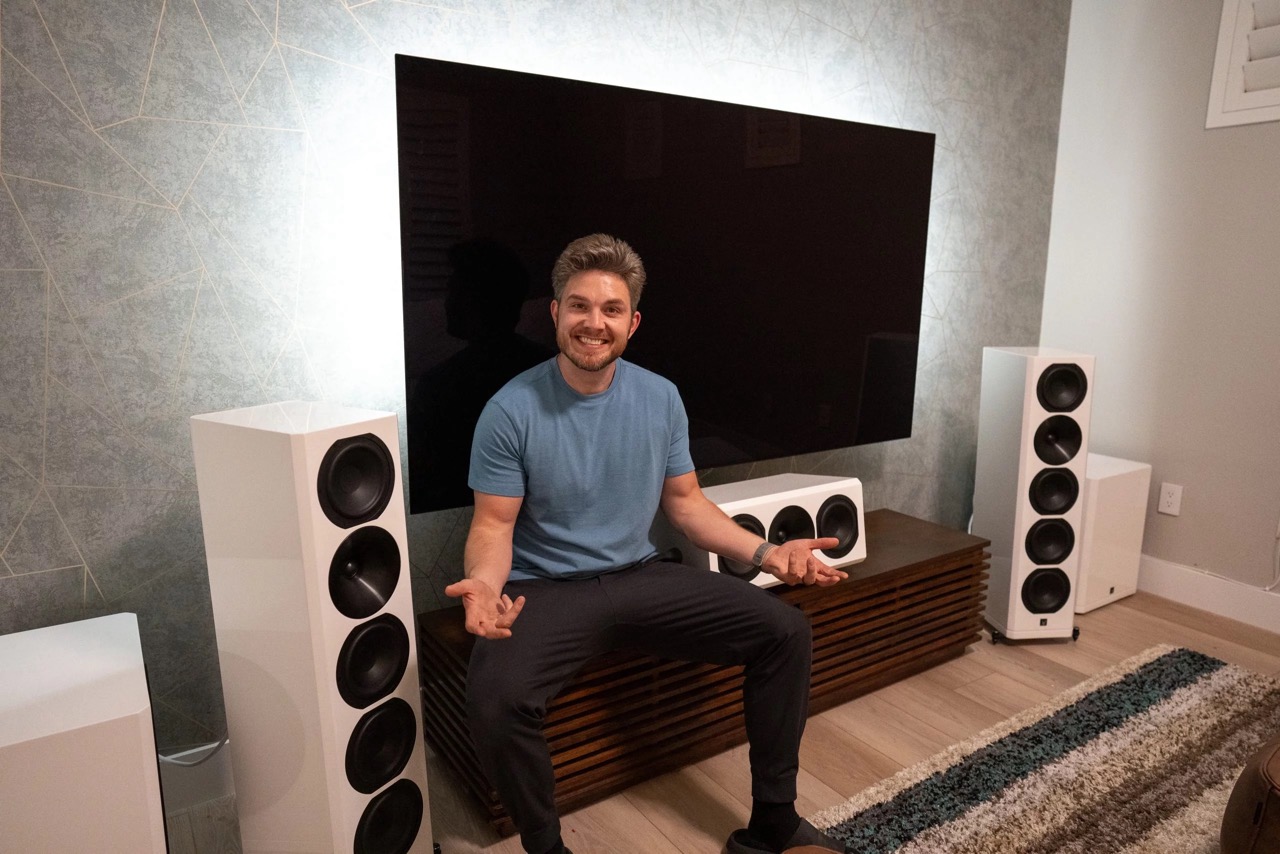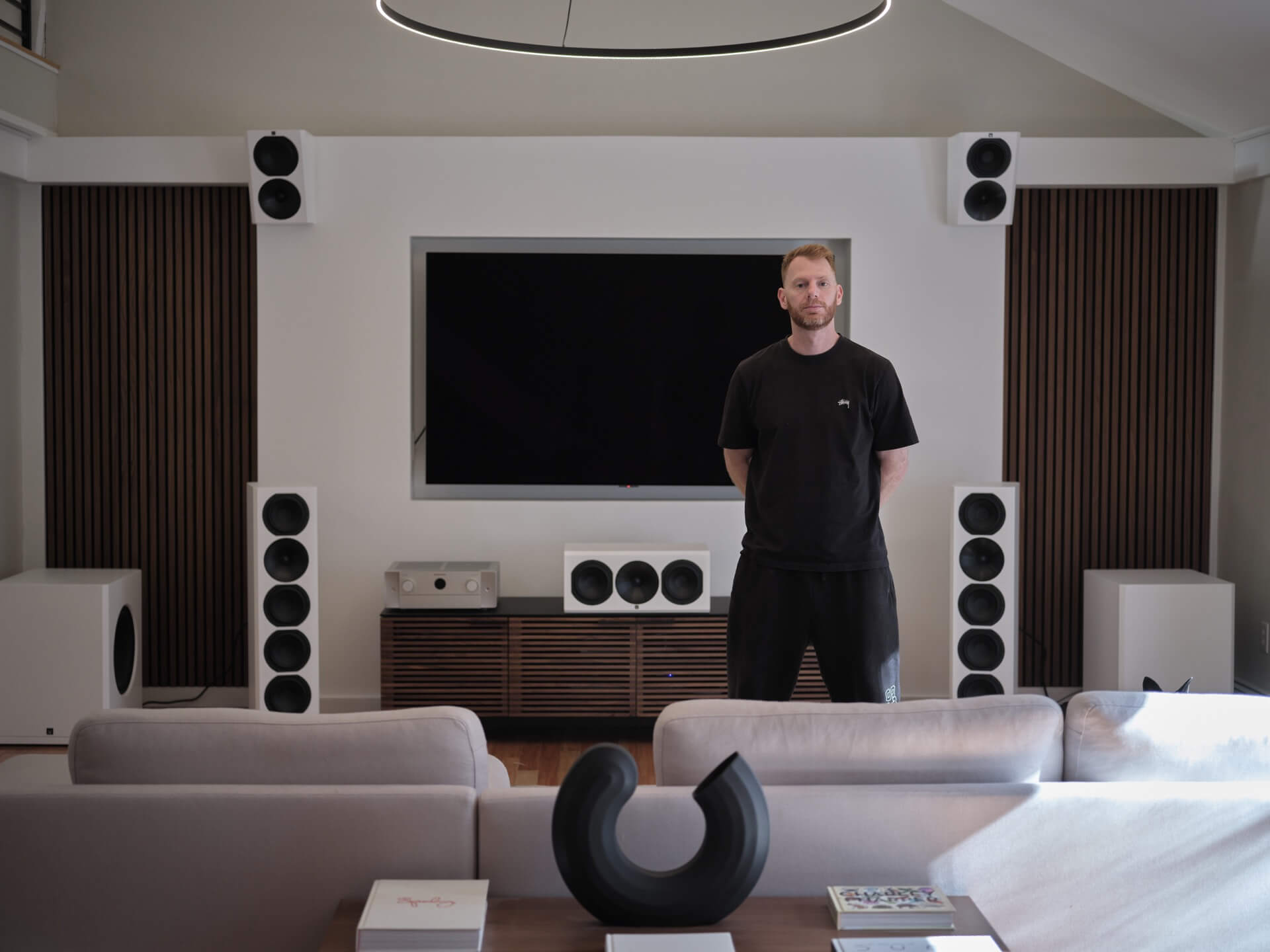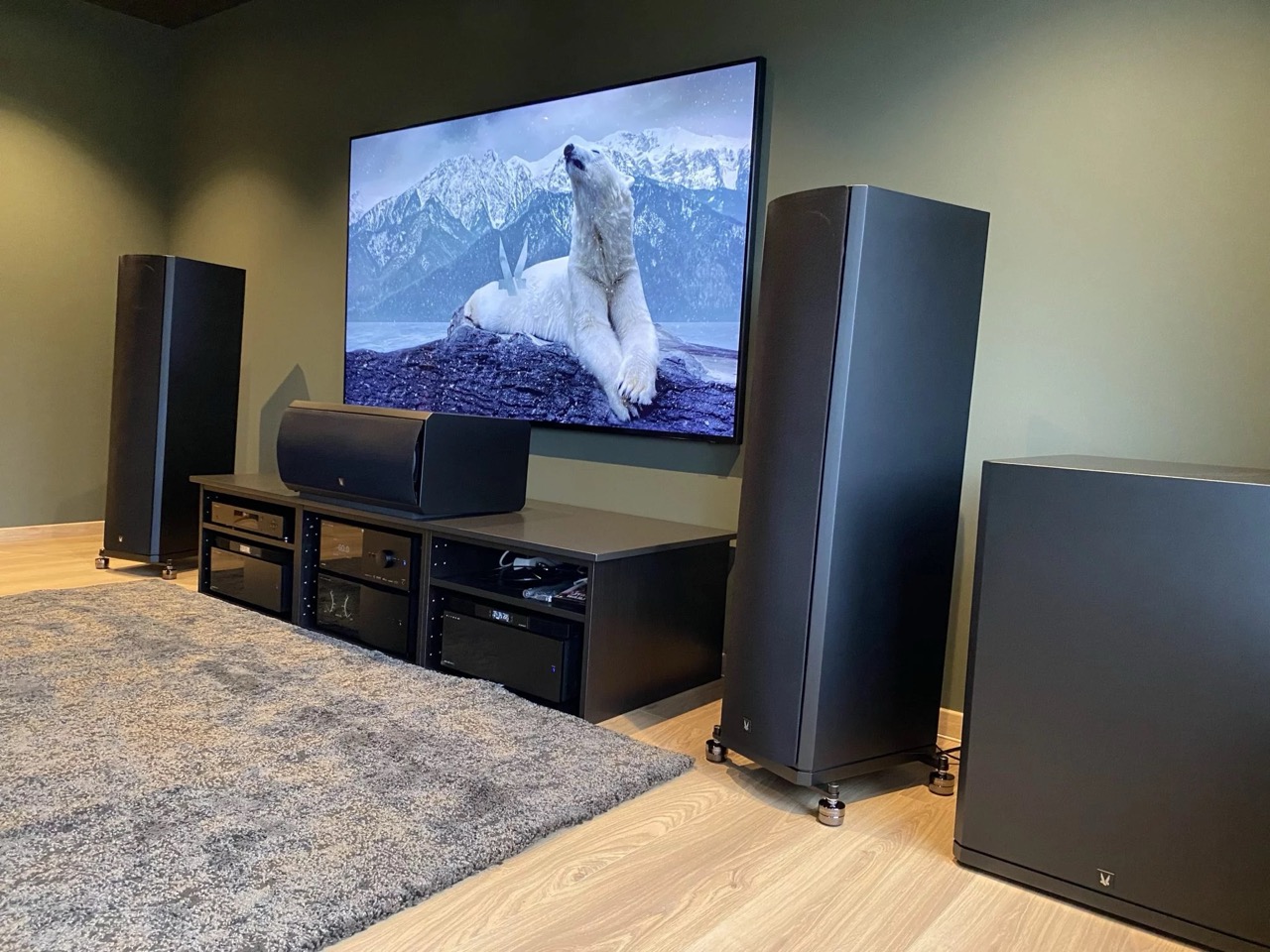Choosing the Right Speakers for Your HiFi System
Article summary - TL;DR
- Understand different speaker types: Bookshelf, floor-standing, in-wall, and more.
- Key specs to look for: Power handling, sensitivity, and frequency response.
- Room acoustics matter—place speakers thoughtfully for optimal sound.
- Match your speakers with the amplifier for an enhanced audio experience.
- Looking to elevate your setup? Check out the 1528 Tower 8 for expansive sound and depth.
Understanding Speaker Types
Finding the ideal speakers for your HiFi system starts with understanding the different types that are available. The type of speaker you choose will have a significant impact on the overall sound quality of your home cinema.
Bookshelf speakers are compact and designed to fit on a shelf or stand. They’re a common choice for smaller rooms or as part of a larger surround sound setup. Floor-standing speakers, on the other hand, are larger and often provide a fuller range sound with more robust bass.
In-wall and in-ceiling speakers are great for a minimalist look and are integrated into the room’s architecture. Satellite speakers are small and typically used in surround sound systems, while center channel speakers are specifically designed to reproduce dialogue and audio for movies and television.
Speaker Specifications to Consider
When selecting HiFi speakers, there are certain specifications that you should pay attention to. These include power handling, sensitivity, and frequency response, which collectively determine how well speakers will perform in your space.
Power handling indicates how much power, in watts, a speaker can handle from an amplifier without distorting the sound. Sensitivity measures how efficiently speakers convert power into sound. The higher the sensitivity, the louder the speaker will be at a given power level.
Frequency response describes the range of frequencies a speaker can reproduce, typically represented in hertz. A wider frequency response suggests a greater ability to reproduce both high and low sounds, contributing to a richer audio experience.
Room Acoustics and Speaker Placement
Your room’s acoustics play a pivotal role in audio quality. Hard surfaces reflect sound, while softer materials absorb it. Understanding how sound interacts with your room can help you place your speakers for the best sound quality.
Ideal speaker placement varies based on the type of speakers and the room’s layout. For stereo listening, speakers should generally be placed at ear height and be an equal distance from each other and the listener, forming an equilateral triangle.
If your setup includes a subwoofer, corner placement can enhance the bass response due to room gain. Remember, though, that every room is different, and you may need to experiment with speaker location to find the sweet spot.
Matching Speakers with Your Equipment
For the optimal audio experience, it’s crucial to match your speakers with the rest of your HiFi equipment. The compatibility between your speakers and amplifier affects the system’s overall performance.
Ensure that the impedance of your speakers corresponds well with the output of your amplifier. Mismatched impedance can lead to suboptimal performance or even damage your equipment.
Additionally, consider the connectivity options available on your speakers and amp, such as banana plugs, spade connectors, or bare wire terminals, to ensure a secure and straightforward setup.
Frequently asked questions
What are the different types of speakers for a HiFi system?
There are various types of speakers including bookshelf speakers for smaller spaces, floor-standing speakers for fuller sound, in-wall and in-ceiling speakers for a minimalist look, satellite speakers for surround sound, and center channel speakers tailored for dialogue in movies and TV.
What specifications should I consider when choosing HiFi speakers?
Key specifications include power handling (watts), sensitivity (efficiency in converting power to sound), and frequency response (range of frequencies). These factors impact the speaker's performance and sound quality.
How does power handling affect speaker performance?
Power handling indicates the maximum power a speaker can handle from an amplifier without sound distortion. Choosing speakers with appropriate power handling ensures optimal sound quality in your setup.
What is sensitivity in speakers, and why is it important?
Sensitivity measures how efficiently a speaker converts power into sound. Higher sensitivity means the speaker will produce louder sound at a given power level, contributing to a better audio experience.
How does frequency response influence sound quality?
Frequency response reflects the range of frequencies a speaker can reproduce. A wider frequency response allows for better reproduction of both high and low sounds, enriching the overall audio quality.
Why is room acoustics important for speaker placement?
Room acoustics affect how sound interacts within the space. Hard surfaces reflect sound while softer materials absorb it, making understanding room dynamics crucial for optimal speaker placement.
What is the ideal speaker placement for stereo listening?
For stereo listening, position speakers at ear height, equal distance from each other, and the listener to form an equilateral triangle for the best sound quality.
How can I improve bass response with speaker placement?
Placing a subwoofer in a corner can enhance bass response due to room gain, but fine-tuning the exact location may require experimenting with different positions in your specific room.
How do I match speakers with my HiFi equipment?
To ensure optimal audio performance, match your speakers' impedance with your amplifier’s output and check connectivity options like banana plugs or bare wire terminals for a secure setup.








